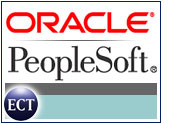
Oracle will enter a Delaware court this week to request an order for dissolution of PeopleSoft’s customer assurance program and poison pill.
“The poison pill is designed to make it more difficult for Oracle to take over the organization. The customer assurance program is designed to compensate customers should there be a takeover. It’s a financial liability for Oracle,” said Andrew Bartels, research analyst for Forrester Research.
Oracle will appear before Judge Leo Shrine. His reputation for protecting the rights of outside shareholders may be good news for Oracle.
Flipping Pills
The customer assurance program that would pay PeopleSoft clients a total of US$2 billion for any disruption of services that might occur should the Oracle deal go through.
A poison pill enables the target company, in this case PeopleSoft, to make its stock less attractive to the acquirer. There are two types of poison pills. A “flip-in” allows existing PeopleSoft shareholders to buy more shares at a discount, while a “flip-over” would allow PeopleSoft stockholders to buy Oracle shares at a discounted price after the merger.
PeopleSoft is employing the flip-in model. By purchasing more shares cheaply, PeopleSoft investors would get instant profits and, more importantly, dilute the shares held by Oracle, making the takeover more expensive.
Poison Loses Allure
With the Friday announcement of PeopleSoft’s termination of Craig Conway, CEO and president, the poison pill may no longer be an attractive tool for PeopleSoft. That move has been widely viewed as an indication that PeopleSoft will become more willing to consider a merger.
“It’s important to remember that the poison pill would affect shareholders directly.” Overall, shareholders have been much more amenable to the idea of a merger than PeopleSoft management has been.
If Shrine rules in Oracle’s favor, the company’s takeover of PeopleSoft becomes more likely.












































